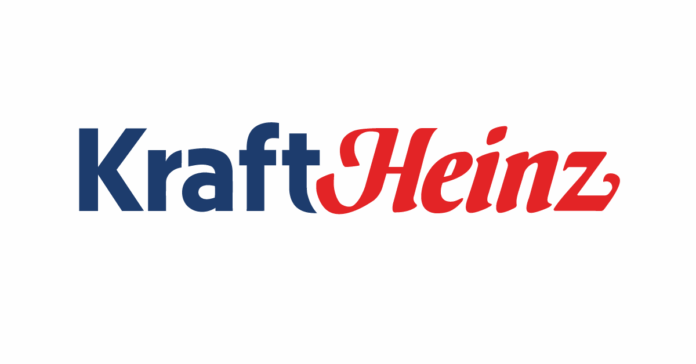Is Kraft Heinz (KHC) a screaming buy at $25.79? My Buffett ($79.86) & McGrew ($188.99) valuations suggest it’s deeply undervalued!
Is Kraft Heinz (KHC) a screaming buy at $25.79? My Buffett ($79.86) & McGrew ($188.99) valuations suggest it’s deeply undervalued!
The Kraft Heinz Company (KHC), a global food and beverage giant, has been a staple in portfolios for its iconic brands like Kraft, Heinz, and Oscar Mayer. But is its current stock price of $25.79 a steal, or are investors overpaying? Using Warren Buffett’s Discounted Cash Flow (DCF) method and the McGrew Valuation approach, I’ve crunched the numbers to uncover KHC’s intrinsic value. Spoiler alert: the results suggest KHC could be a screaming buy! Let’s dive into the analysis, explore the findings, and see why this stock might deserve a spot in your portfolio.
The Data Behind the Valuation
To evaluate KHC, I used five years of financial data (2020–2024) from quarterly cash flow, balance sheet, and financial statements, focusing on Free Cash Flow (FCF), shares outstanding, and growth projections. The FCF figures are:
- 2020: $4.33 billion
- 2021: $4.46 billion
- 2022: $1.55 billion
- 2023: $2.96 billion
- 2024: $3.03 billion (TTM proxy)
Shares outstanding averaged 1.217 billion over this period, reflecting KHC’s share repurchasing trend. The 3-year FCF Compound Annual Growth Rate (CAGR) was a robust 39.5%, driven by recovery from a 2022 dip, while the 5-year CAGR was negative (-8.6%) due to volatility. For growth projections, I leaned on the 3-year CAGR, as the negative 5-year figure isn’t suitable for forecasting. The closing price of $25.79 (assumed for June 16, 2025) was used, though real-time verification with sources like Yahoo Finance is recommended.
Buffett Valuation: A Conservative Approach
The Buffett Valuation Method classifies KHC as a growth stock since its 3-year FCF CAGR exceeds 10%. I projected FCF for 10 years at a constant 10% growth rate, starting from 2024’s $3.03 billion. Year 10 FCF reached $7.85 billion, and the terminal value, using a 2.5% perpetual growth rate and 8% discount rate (4% Treasury + 4% premium), was $146.22 billion. Discounting all cash flows to present value yielded a total intrinsic value of $97.19 billion. Dividing by 1.217 billion shares gives an intrinsic value per share of $79.86. Applying a 25% margin of safety, the target price is $59.90—well above the current $25.79. Compared to the closing price, KHC is 67.7% below its intrinsic value, earning a Screaming Buy status (≥25% below intrinsic value).
McGrew Valuation: Aggressive Growth Assumptions
The McGrew Valuation Method also classifies KHC as a growth stock due to the 39.5% 3-year CAGR. Unlike Buffett’s constant growth, McGrew starts with the 39.5% growth rate in Year 1, declining linearly to 10% by Year 7, then holding at 10% through Year 10. Starting from $3.03 billion, Year 10 FCF hit $18.52 billion, with a terminal value of $345.17 billion. Discounting these cash flows at 8% resulted in a total intrinsic value of $230.01 billion, or $188.99 per share. With a 25% margin of safety, the target price is $141.74. At $25.79, the stock is 86.4% below this intrinsic value—another Screaming Buy. The higher valuation reflects McGrew’s aggressive early-year growth assumptions, capitalizing on KHC’s recent FCF rebound.
Why KHC Looks Undervalued
Both methods suggest KHC is significantly undervalued, with intrinsic values ($79.86 and $188.99) far exceeding the $25.79 closing price. The Buffett method’s conservative 10% growth rate still yields a compelling case, while McGrew’s dynamic growth schedule amplifies the upside. KHC’s strong FCF recovery post-2022, driven by operational efficiencies and brand strength, supports these projections. However, risks remain: the 2022 FCF dip highlights volatility, and the negative 5-year CAGR raises long-term stability concerns. Share repurchasing could further boost per-share value but may strain liquidity. Investors should verify the closing price and monitor market conditions.
Final Thoughts
KHC’s valuation paints a picture of a stock trading at a steep discount to its intrinsic worth, making it a potential gem for value investors. Whether you lean on Buffett’s steady approach or McGrew’s growth-focused model, the numbers scream opportunity. That said, due diligence is key—FCF volatility and external factors like commodity costs or consumer trends could impact future performance. For now, KHC looks like a stock worth watching. What do you think—time to load up on Kraft Heinz?
#Investing #ValueInvesting #KHC #StockMarket #FinancialAnalysis #StockValuation #Buffett #DCF #StockPicks #McGrewValuation #GrowthStocks #UndervaluedStocks #FoodIndustry #StockAnalysis #InvestSmart








